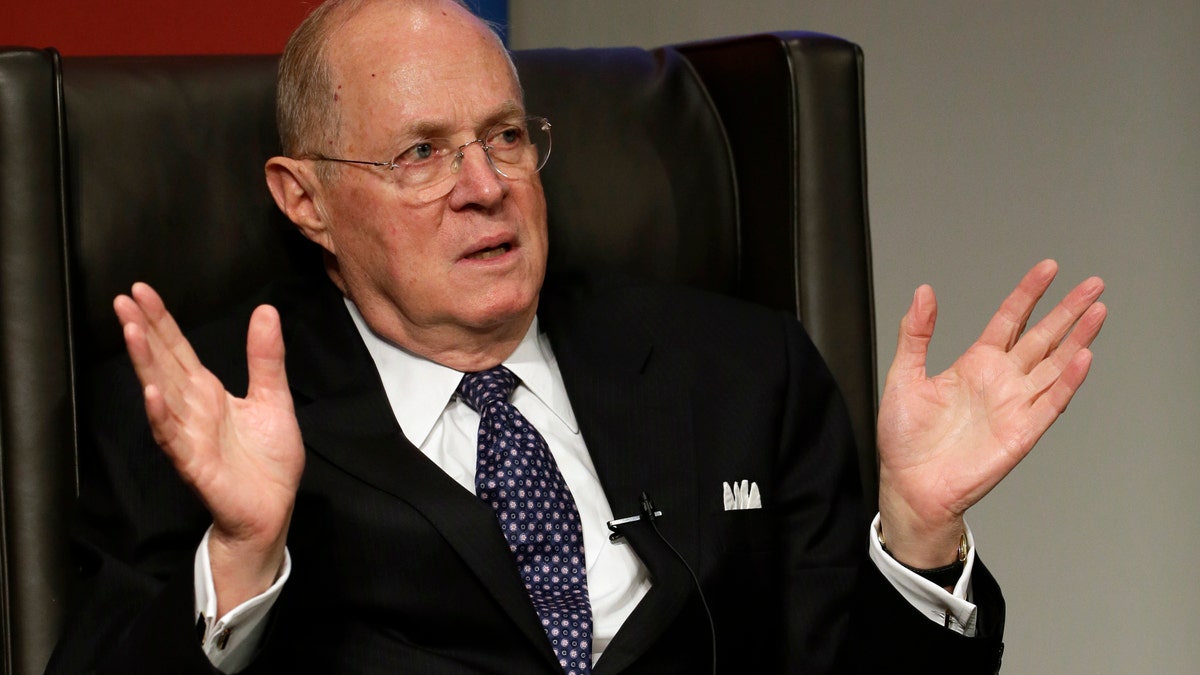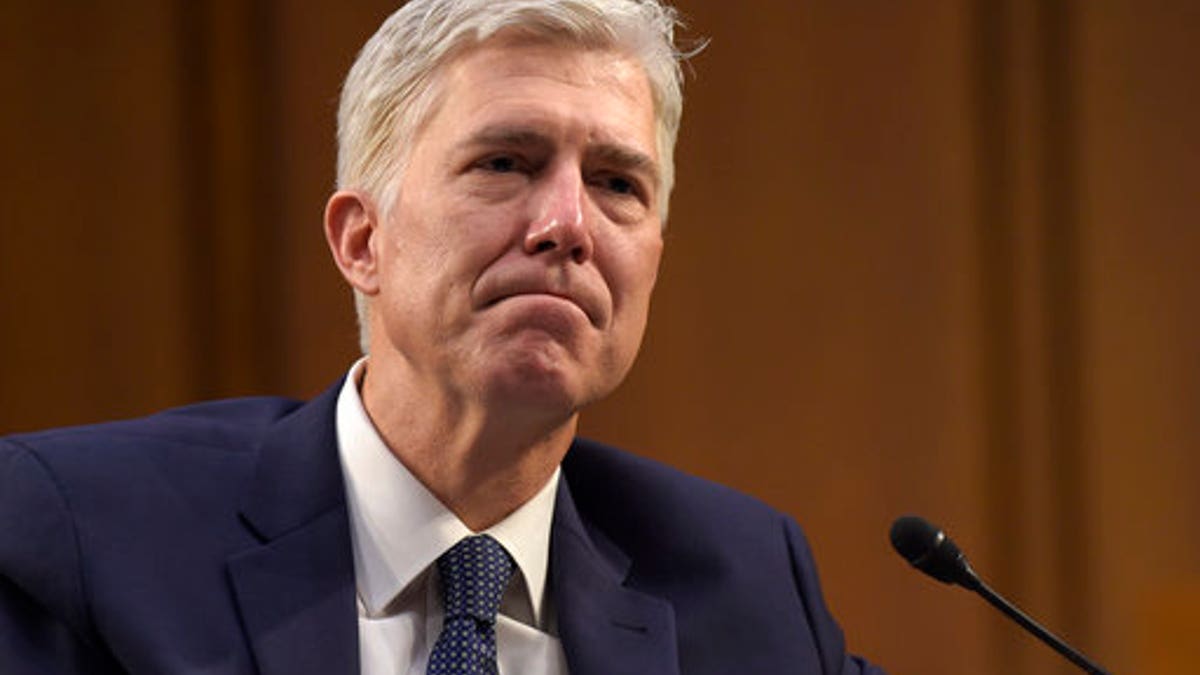Conway talks possible SCOTUS opening, health care battle
Counselor to President Trump speaks out on 'Fox & Friends'
Supreme Court Associate Justice Anthony Kennedy, the court’s longest-serving justice, is rumored to be announcing his retirement, and the White House says that decision is “entirely” up to him.
Kennedy, 80, who has served on the Supreme Court for 29 years, has played a pivotal role as the court’s swing-vote on many landmark rulings. His departure would tip the balance of the court to the right, as President Trump’s appointment would likely be conservative.
Counselor to President Trump, Kellyanne Conway, said on Monday that they could not “speculate” on the rumors of Kennedy’s retirement.

Supreme Court Justice Anthony Kennedy speaks to faculty members at the University of Pennsylvania law school, Thursday, Oct. 3, 2013, in Philadelphia. Kennedy is teaching this week at the University of Pennsylvania law school.(AP Photo/Matt Slocum) (AP)
“We cannot speculate on that-- that is totally Justice Kennedy’s decision and he has served for 30 years, almost 30 years, with distinction and care on the court and that is entirely his decision,” Conway said on “Fox & Friends.” “I do know when the president, when he appointed Neil Gorsuch, he made very clear that at any time when he gets to a federal appointment, whether at the Supreme Court level, or the district courts, circuit courts, he will appoint people, nominate people who have fidelity to the Constitution, don’t just legislate from the bench, [or] make it up as they go along.”
When asked, hypothetically, if the president would nominate one of the names being floated to fill late-Justice Antonin Scalia’s place on the bench, Conway suggested that the president has made “very clear” that he will appoint “men and women of great judicial temperament and credentials,” who, she said, should be able to “attract more than a handful of Democratic votes in the Senate.”

Supreme Court Justice nominee Neil Gorsuch listens as he is asked a question by Sen. Mazie Hirono, D-Hawaii, on Capitol Hill in Washington, Wednesday, March 22, 2017, during his confirmation hearing before the Senate Judiciary Committee. (AP Photo/Susan Walsh) (AP)
“He has said he will look at the list again, and again that ended up being 20 or 21 men and women, all fine judicial scholars and practitioners,” Conway said. “But again, I don’t want this tied to Justice Kennedy or any other one member because these are lifetime appointments.”
On the campaign trail, then-candidate Trump released a list of names he was, reportedly, considering to fill Scalia’s vacancy, including Raymond Kethledge of Michigan, Joan Larsen of Michigan, Thomas Lee of Utah, William Pryor of Alabama, David Stras of Minnesota, Diane Sykes of Wisconsin, and Don Willett of Texas.
After his inauguration, the president narrowed his decision to Gorsuch and Thomas Hardiman of the 3rd Circuit.
But Conway slammed Senate Democrats, saying that they were “blinded by their partisanship and by their obstruction,” when it came to confirming Associate Justice Neil Gorusch to the bench in April.
The Senate was forced to take the “nuclear” option to confirm Gorsuch, which meant Republicans changed Senate rules, lowering the vote threshhold to push Gorsuch through to confirmation on a simple majority.
“We just can’t have that, particularly when you look at the Supreme Court, and you see dozens and dozens, almost 100 vacancies in these courts that the president began with and intends to fully nominate,” Conway said.






















